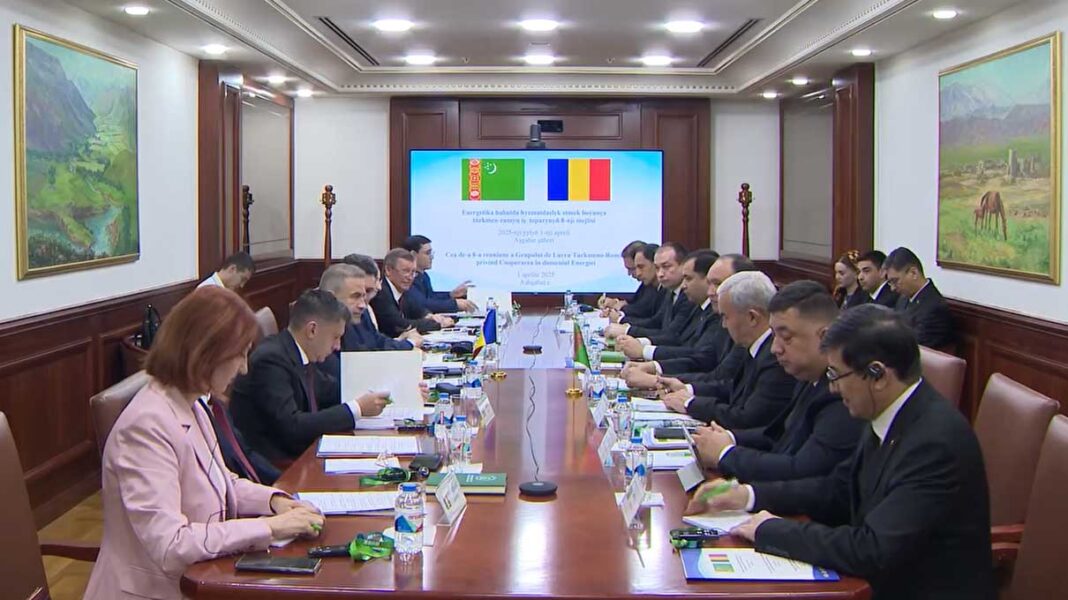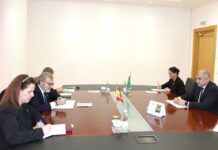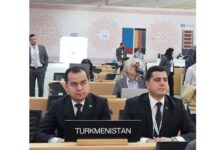On April 1, Ashgabat hosted the 8th meeting of the Turkmen-Romanian working group on energy cooperation, bringing together high-level officials and industry leaders from both nations. The Turkmen side was led by G. Agajanov, Chairman of the State Concern “Turkmennebit,” while the Romanian delegation was headed by Pavel-Casian Nitulescu, State Secretary of Romania’s Ministry of Energy, alongside Romania’s Ambassador Extraordinary and Plenipotentiary to Turkmenistan Ion Naval and Ștefan Vuza, Chairman of Chimcomplex. Discussions focused on expanding energy collaboration, particularly in natural gas, petrochemicals, renewables, and infrastructure projects, as both countries seek to deepen strategic partnerships with European markets.
The agenda also covered key initiatives, including the Turkmenistan-Afghanistan-Pakistan-India (TAPI) gas pipeline, the development of the Arkadag Smart City project, and the expansion of academic exchanges between Yagshygeldi Kakayev International Oil and Gas University and Petroleum and Gas University of Ploiești. The discussions were driven by the participation of the Deputy Minister of Finance and Economy of Turkmenistan, the Rector of the International University of Oil and Gas, and representatives from major state energy corporations such as “Turkmengas,” “Turkmenhimiya,” and “Turkmenenergo,” who played a crucial role in outlining future cooperation prospects. Both sides reaffirmed their commitment to strengthening bilateral ties and ensuring effective follow-up actions to advance joint energy and infrastructure initiatives.
Additionally, the closed joint-stock company “Marine Merchant Fleet” (“Deňiz söwda floty” ÝGPJ) presented potential collaboration for oil product cargo shipments between the Turkmenbashi International Seaport and Romania’s Port of Constanța. Leveraging its EU membership, Black Sea access, and key energy infrastructure projects like Neptun Deep, BRAU and Iași–Ungheni–Chișinău gas pipelines, and Southern/Vertical Gas Corridors, Romania can serve as a strategic gateway for Turkmen energy to European and Balkan markets. By the conclusion of the meeting, both sides signed a joint communiqué, formalising the agreements reached and outlining the next steps for deepening cooperation.









